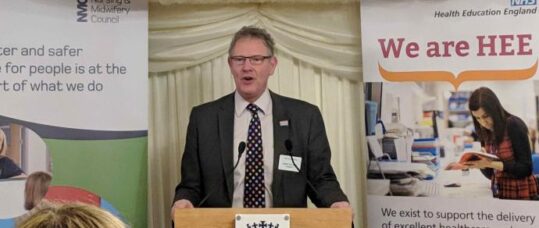HEE hits target of recruiting 5,000 nursing associates in 2018

Health Education England (HEE) have hit their target of recruiting 5,000 people to nursing associate courses in 2018, it has been announced.
At an event in Westminster on Wednesday evening, celebrating the first qualified nursing associates to enter the Nursing and Midwifery Council (NMC) register, health minister Stephen Hammond announced that the target of 5,000 had been exceeded, with this cohort due to graduate in 2020.
Related Article: MPs vote to legalise assisted dying in England and Wales
It adds to the initial cohort of 2,000 recruited in January 2017, and due to graduate this year, meaning by next year there will be over 7,000 qualified nursing associates.
Around 40% of these have expressed a desire to go on to become registered nurses, completing a further two years of studying, and Mr Hammond confirmed that the Department of Health is working with HEE to ‘lead a programme to allow progression from nursing associate to registered nurse’.
Related Article: Super-regulator finds ‘weaknesses’ across NMC’s regulatory functions
But HEE chief executive Professor Ian Cumming stressed that the nursing associate programme was not simply a means to increasing the number of registered nurses.
He said: ‘Let’s not forget that this is not just about training registered nurses for the future, but it is about a profession in its own right. We do want people to have the opportunity to progress, but we also want to establish this as an important role within the NHS.’
Professor Cumming also revealed that the average age of those taking up nursing associate courses is ‘significantly higher than those embarking on student nurse programmes’, with the highest proportion coming from the 26-35 bracket.
Related Article: Reports of unregulated procedures taking place in public toilets and hotel rooms
HEE statistics showed that only 4% or nursing associates were ‘external’ recruits – those who did not come from an existing band 2 or band 3 healthcare assistant role.

See how our symptom tool can help you make better sense of patient presentations
Click here to search a symptom


Health Education England (HEE) have hit their target of recruiting 5,000 people to nursing associate courses in 2018, it has been announced.



